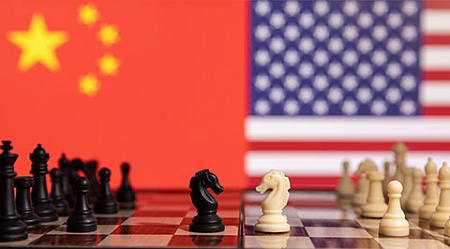
In a surprising diplomatic move, U.S. President Donald Trump is set to arrive in Malaysia next week, aiming to formally endorse a peace agreement between Cambodia and Thailand. This intervention comes despite a crowded domestic and international agenda, highlighting the strategic importance Washington places on Southeast Asia. The precarious 817-kilometer border between the two ASEAN nations, much of it undemarcated, erupted into five days of clashes in July, leaving 48 dead and displacing hundreds of thousands from their homes.
While only a shaky ceasefire currently holds, Malaysia, leveraging its role as the current chair of the Association of Southeast Asian Nations (ASEAN), has been working with the United States to elevate this truce into a formal declaration, tentatively dubbed the “Kuala Lumpur Accord.” Trump’s presence at the signing ceremony is widely seen as a deliberate maneuver to assert American influence and challenge China’s burgeoning dominance in a region where Beijing has long held sway.
Neither Malaysian Foreign Minister Mohamad Hasan nor Prime Minister Anwar Ibrahim has publicly acknowledged this underlying geopolitical rivalry. However, Ibrahim confirmed Trump’s anticipated presence at a regional conference in Kuala Lumpur, scheduled to coincide with the ASEAN Summit. Beyond the U.S. President, reports suggest the Japanese Prime Minister – though the precise individual remains uncertain due to instabilities within Tokyo’s ruling coalition – and the South Korean President are also expected to attend, underscoring the event’s high-level diplomatic profile.
According to insights from The Diplomat magazine, Malaysia, as the ASEAN chair, has actively sought to attract a significant roster of international leaders to its regional conferences. While official confirmation regarding Trump’s attendance is still pending from Kuala Lumpur, the situation with China is even more complex. Beijing typically announces the foreign travel plans of President Xi Jinping or other senior officials only days before an event. Given President Xi’s visit to Malaysia in April this year, it is widely anticipated that Premier Li Qiang will represent China at the upcoming summit, rather than Xi himself.
Should President Xi indeed forgo the event, the press spotlight will undoubtedly fall squarely on President Trump. This potential media frenzy around the U.S. leader risks overshadowing the intricate details and critical nuances of the Cambodian-Thai negotiations. Yet, these details are paramount if the neighboring nations are truly committed to ending their long-standing animosity. As reported by the Associated Press, the initial ceasefire was only achieved through the mediation efforts of the Malaysian Prime Minister and significant pressure from Trump, who reportedly threatened to revoke trade privileges if a truce was not reached.
Despite the ceasefire, tensions along the border remain palpable. In August, several Thai soldiers were reportedly wounded during a patrol in the buffer zone, with Bangkok accusing Cambodia of deploying new anti-personnel mines – an allegation Phnom Penh vehemently denies. Thailand has laid out four specific demands for Cambodia: the withdrawal of heavy weaponry from the border, demining of the contested areas, prevention of criminal group crossings, and joint management of sensitive zones to avert future conflicts. Phnom Penh has yet to issue an official response to these conditions, though Malaysia’s Foreign Minister has expressed optimism that the truce will be strengthened by the withdrawal of heavy artillery and mine clearance efforts.
While the conflicts in Ukraine or Gaza currently dominate global headlines, the persistent friction in Southeast Asia serves as a crucial arena for direct competition between Washington and Beijing. Historically, during the Cold War, the U.S. allied with Thailand, even maintaining a military base from which bombers launched raids into Vietnam and Cambodia. China, conversely, supported Cambodia, even during the brutal Khmer Rouge regime under Pol Pot.
Today, these dynamics have evolved, yet the rivalry persists. Cambodia has emerged as a close partner of China, benefiting from substantial Chinese investment, including the construction of a naval base and upgrades to a major seaport handling both cargo and passenger vessels. Concurrently, China also maintains friendly relations with Thailand, where a significant Chinese diaspora has long been integrated. This allows Beijing to potentially project itself as a benevolent mediator to both conflicting parties during the upcoming ASEAN Summit. Adding another layer of complexity, President Trump’s perceived strong support for Israel in the Gaza conflict has rendered him unpopular in Malaysia, which could subtly influence regional perceptions of his diplomatic mission.
